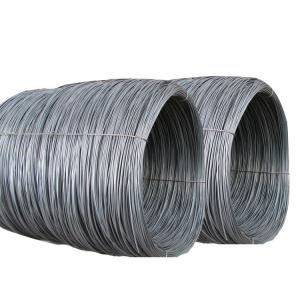
Add to Cart
Ordinary carbon structural steel is also called ordinary carbon steel. The carbon content is 0.06-0.22%, with less than 0.25% being the most commonly used. Belonging to low carbon steel, each metal grade represents the lowest yield point of the steel when the thickness is less than 16mm.
Rebar refers to steel used for reinforced concrete and prestressed reinforced concrete, with a circular cross-section and sometimes a square shape with rounded corners. Including plain round steel bars, ribbed steel bars, and twisted steel bars.
Steel bars for reinforced concrete refer to straight or coiled steel bars used for reinforced concrete reinforcement. Their appearance is divided into two types: smooth round steel bars and deformed steel bars, and the delivery status is divided into straight and coiled steel bars.
Plain round steel bars are actually small round bars and coils of ordinary low-carbon steel. Deformed steel bars are ribbed steel bars on the surface, usually with 2 longitudinal ribs and evenly distributed transverse ribs along the length direction. The shape of transverse ribs can be spiral, herringbone, or crescent shaped. Expressed in millimeters of nominal diameter. The nominal diameter of deformed steel bars is equivalent to the nominal diameter of plain round steel bars with equal cross-sectional area. The nominal diameter of the steel bar is 8-50 millimeters, and the recommended diameters are 8, 12, 16, 20, 25, 32, and 40 millimeters. Steel grades: 20MnSi, 20MnV, 25MnSi, BS20MnSi. Steel bars mainly bear tensile stress in concrete. Deformed steel bars, due to the action of ribs, have a greater bonding ability with concrete and can better withstand external forces. Steel bars are widely used in various building structures. Especially for large, heavy, light thin-walled, and high-rise building structures.